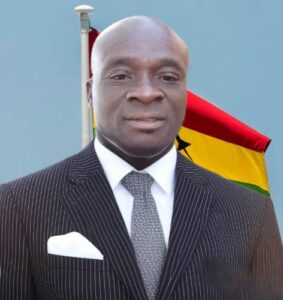
By: PROFESSOR DR. DR. DR. JOSEPH KWASI AGYEMANG
King Mswati III’s visit will enrich the relations between Asanteman and Eswatini while also promoting sharing of beliefs and values across both Kingdoms cultures. This visit will showcase to the global world that that as Africans, regardless of whether you are from the West, South, East or North, we remain one people. This visit can create a platform for inter-regional marriage where Ghanaians and Swazis can marry each other with same beliefs or ideologies.
King Mswati III’s visit will also facilitate bilateral trade between Ghana and Eswatini. It will also boost the tourism industry between the two nations. Also, the creative and artisan industry between the two countries stands to benefit from this historic visit. The movie industry can be diversified by collaboration between Ghanaians and Swazis to shoot movies in the Ashante and Eswatini context.
In the area of education, his visit can create a platform for academic collaboration between Kwame Nkrumah University of Science and Technology and the University of Eswatini. It can also help the two kingdoms to institute a scholarship scheme to help Swazis and Ghanaians studying in Ghana and Eswatini respectively. The two Kingdoms can promote educational initiatives, and advocate for resources. The two kingdoms can work with their universities and other stakeholders to address barriers to education, such as poverty, and cultural norms that may hinder girls’ access to education.
Also, this visit could help the two traditional leaders to contribute to maintaining peace and harmony across the African continent, particularly in regions affected by civil conflict. The two kingdoms can mediate disputes, promote cultural values, and fostering social cohesion. Their deep-rooted authority and understanding of local contexts position them as crucial actors in conflict resolution and peacebuilding in African countries where conflict is ongoing.
By: PROFESSOR DR. DR. DR. JOSEPH KWASI AGYEMANG, AN EXTRAORDINARY PROFESSOR OF ACCOUNTING SCIENCES AT THE UNIVERSITY OF SOUTH AFRICA AND THE UNIVERSITY OF ESWATINI